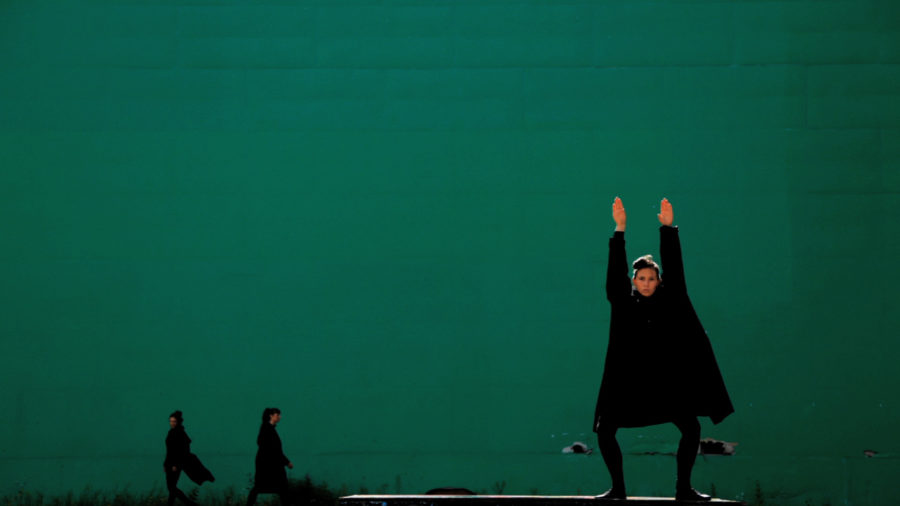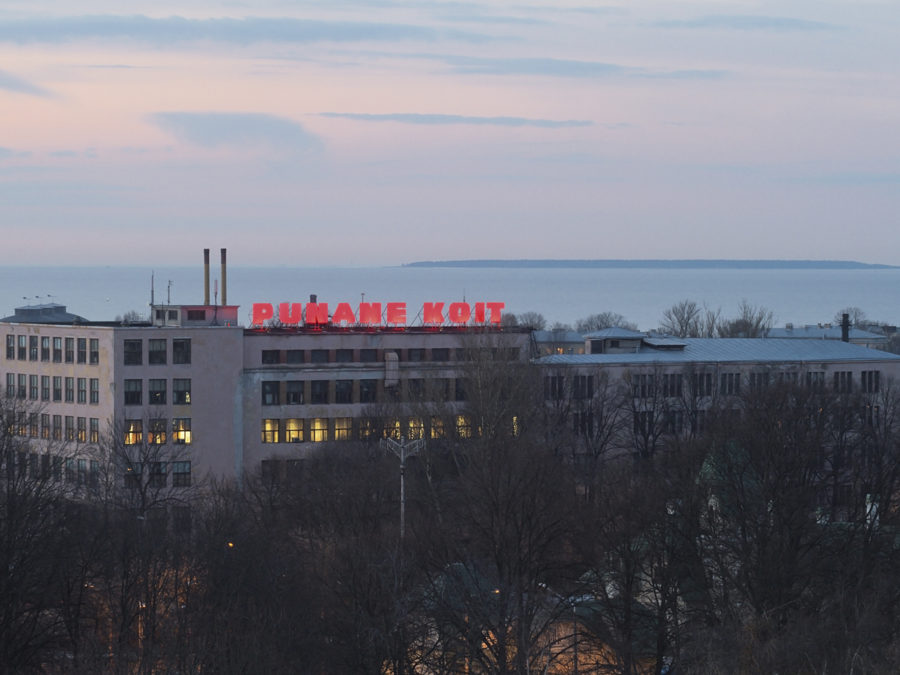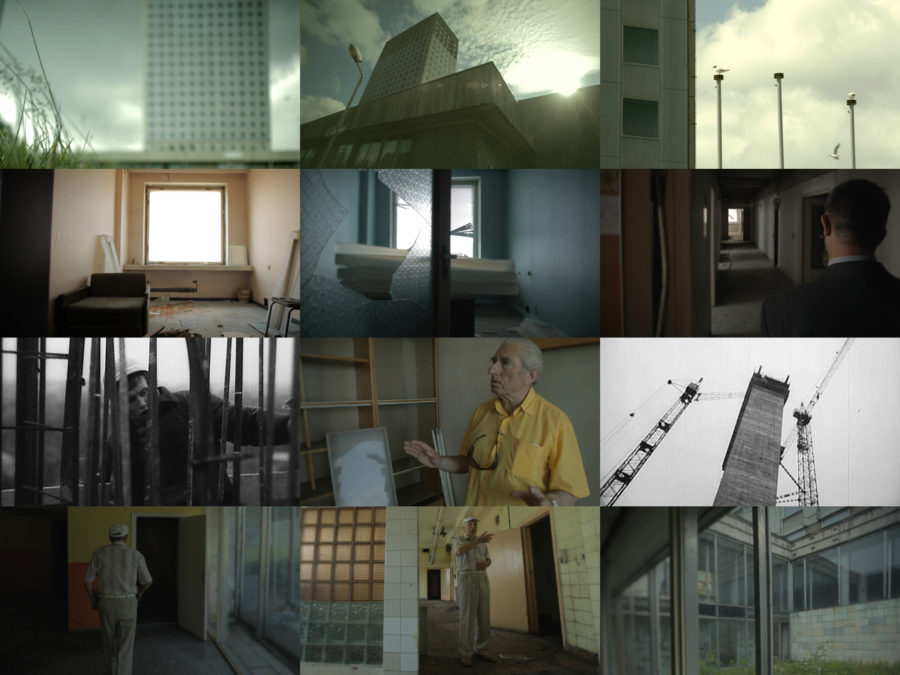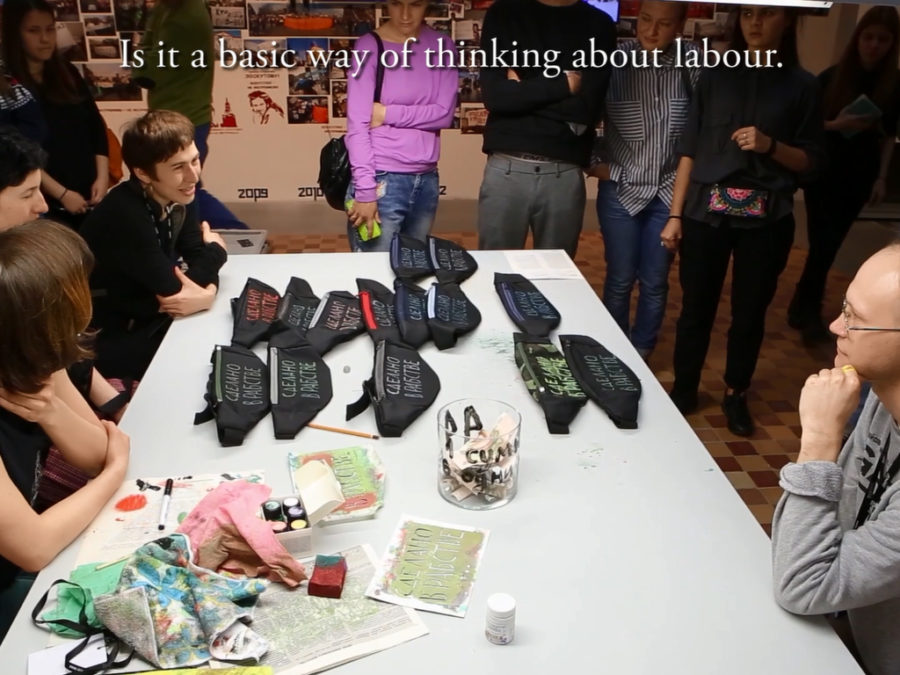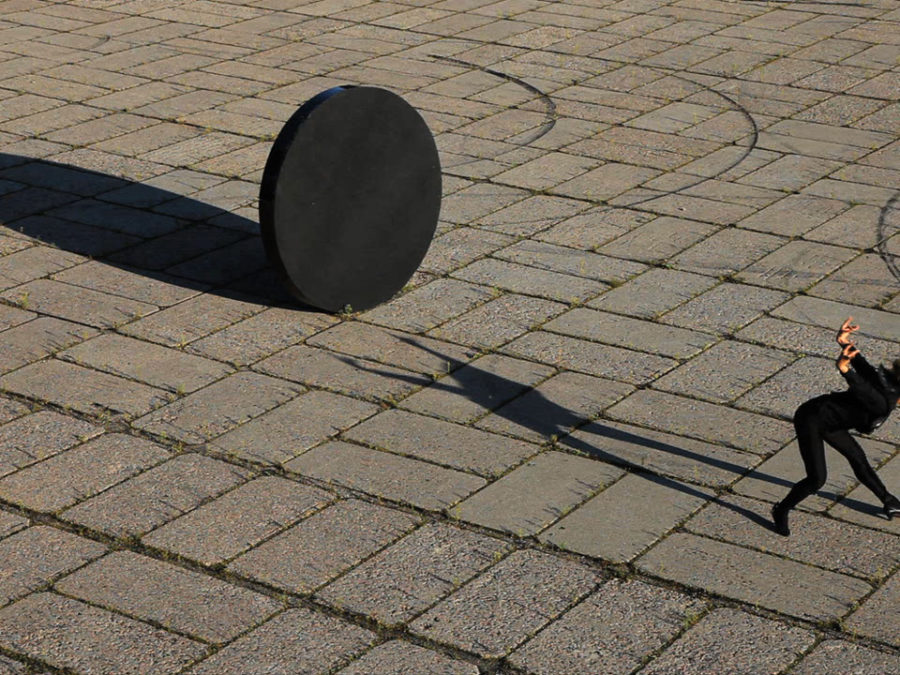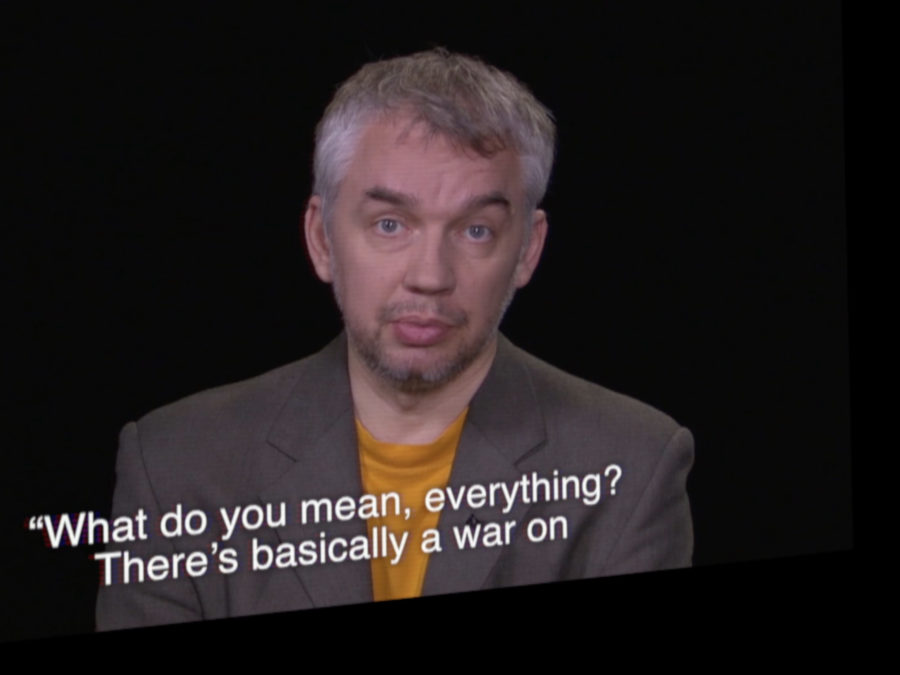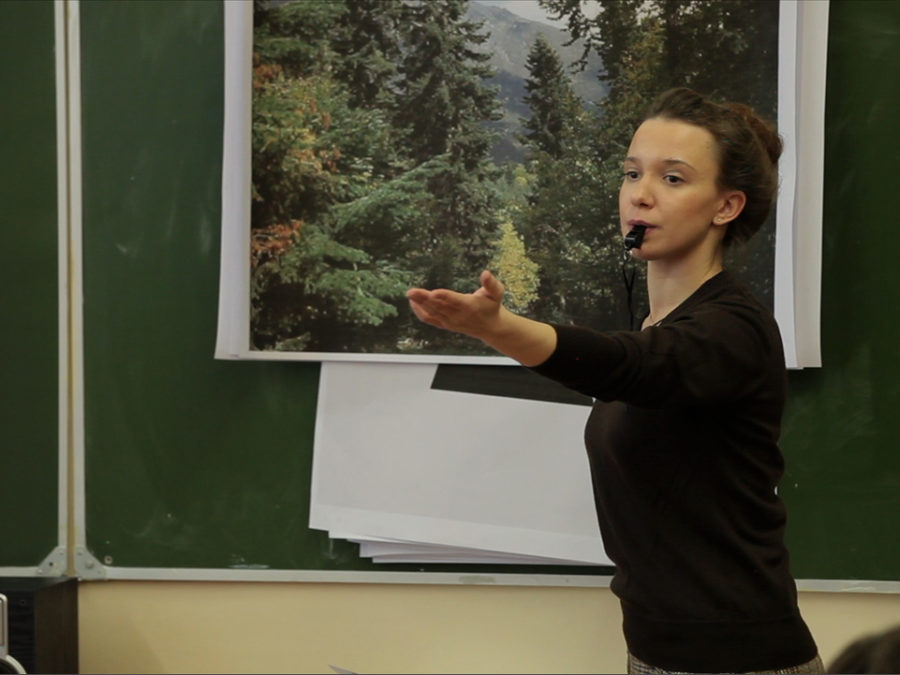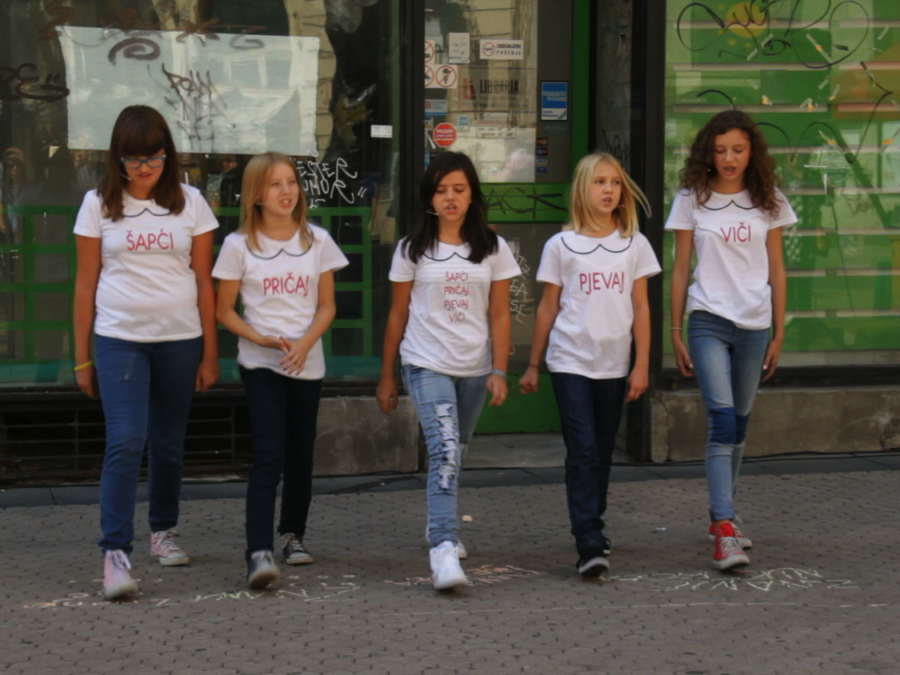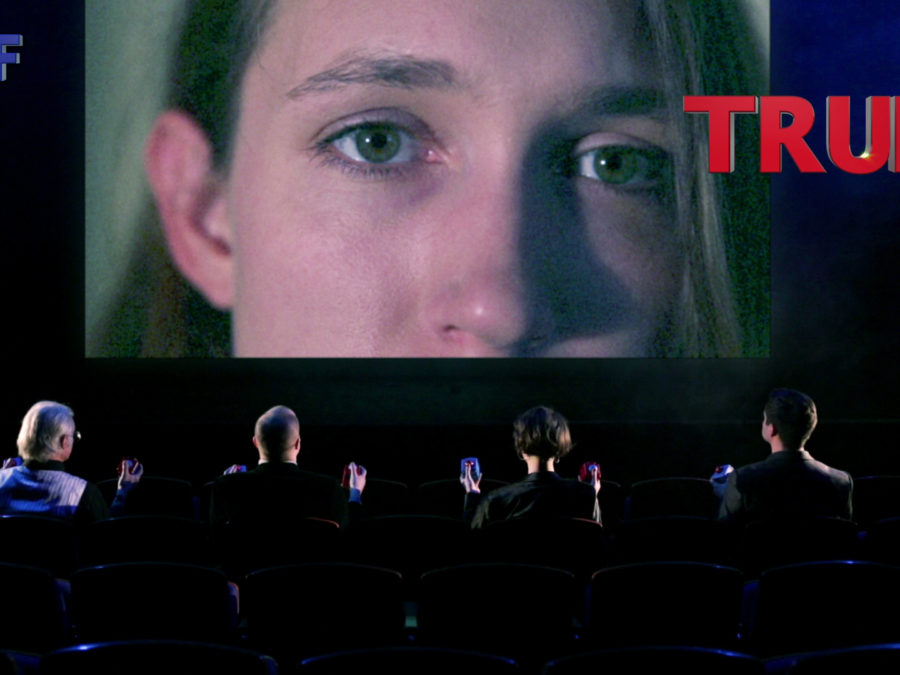The backdrop to the CORO performance Vocabulary Lesson is the Vilnius Palace of Concerts and Sports. The site has a long and twisted history, which reflects the Soviet past in Lithuania. Situated in the location of the former Jewish cemetery, which Soviet authorities destroyed in the late 1940s to build the stadium, the palace opened in 1971. It became an emblem of Soviet modernism. Besides sports and music events, the palace also hosted historically significant events in Lithuania. In 1988, the arena was the site of the Inaugural Congress of Sąjūdis, the reform movement that led to Lithuania achieving its independence. The act of re-establishing the state of Lithuania resulted in numerous attacks led by the military of the USSR. One of these, which took place near the Vilnius television tower, ended with thirteen civilian casualties and numerous injuries. The public funeral for these victims was also held at the Vilnius Palace of Concerts and Sports. After the collapse of the USSR, the palace – like many other sites in post-Soviet territories – was occupied by small shops and other businesses. These remained in operation until its closure in 2004, when the palace was declared a danger zone due to its hazardous conditions.
CORO’s performance (which is certainly “not a dancing lesson,” but “a hypnotic horror session”) is inspired by Vogue – a dance movement that started in Harlem in the 1970s as an emancipating body practice based on copying fashion poses. It later evolved into a form of choreography accompanied by music, a dance subculture that allowed people to perform, juggle different identities, and reinvent themselves. Vocabulary Lesson combines the brutalism of the architectural site with this liberating dance, as well as beautiful Dada-inspired costumes. Juxtaposing these with a text with numerous pop culture and historical references, CORO creates its own language for dealing with the past and describing the future.
CORO Collective (Eglė Budvytytė, Goda Budvytytė, Ieva Misevičiūtė) was the catalyst for transforming any public space into a multi-faceted event by engaging participants and allocating camera-operators in the given space. CORO Collective was active between 2004 and 2009 and was based in Vilnius and Amsterdam.
